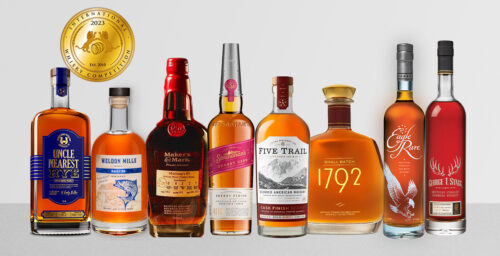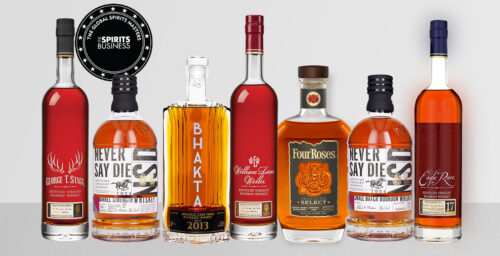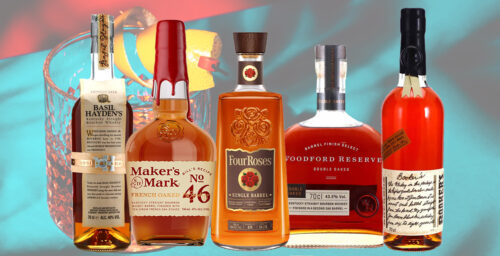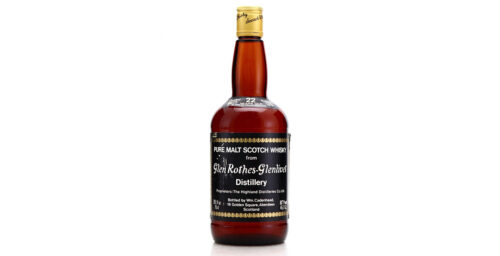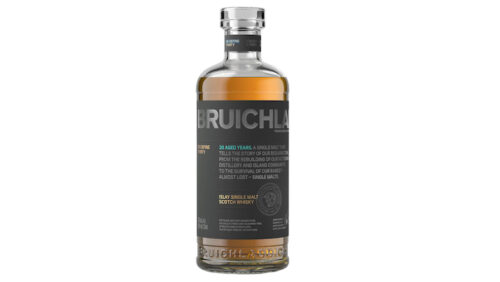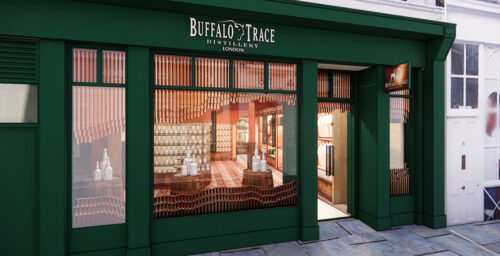Not sure what to make of a California-bred single malt whisky in a tall, slender bottle usually reserved for liqueurs and brandies, I began to investigate the odd decanter before me. And sure enough, Jim Busuttil, founder of Saint James, got his start in distilled fruit.
One of the first U.S. micro-distilleries, Saint James made its entrance into the spirits market with an award-winning cherry brandy back in the mid 90’s. The one-time biology teacher soon turned his focus to creating California-made versions of tequila and Scotch, which he more accurately (and legally) refers to as ‘”California Gold Agave” and “California Pure Single Malt.” Ten years later, Peregrine Rock Whisky added a feather to its cap in the form of an American Distilling Institute silver medal in the Peated Malt Whisky category. Eighteen years on local liquor store shelves is quite an accomplished run for a small batch microdistillery, but the proof will ultimately be found in the liquid.
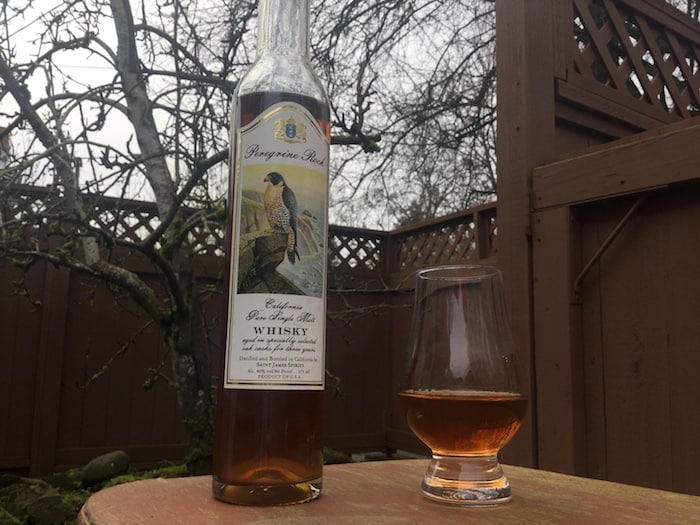
The Peregrine Rock (the aforementioned ‘Pure Single Malt’) is crafted using peated Highland Scottish Barley and mountain spring water, the latter of which translates to tap water and jugs from the local supermarket- a decision made after Busuttil’s visit to true Scottish springs. “I’ve seen some of those places and wouldn’t swim in that water,” he proudly stated in an early interview. This product is made in extremely small batches as the distillery’s equipment is only set to pump out four gallons of distillate per run. What seems on the outside like a hidden local gem and California shelf stalwart teeters between intimidation and eye-rolling as it sits so strangely in this tall, sleek bottle before me.
Bottle aside, the liquid encased inside screams tradition and shows what can be accomplished through time, technique, and inspiration from the rich alcoholic history of Scotland.
Tasting Notes: Saint James Spirits Peregrine Rock Whisky
Vital Stats: 80 proof. Aged in oak for three years. $26/375ml.
Appearance: Pours an attractive oak-stained dark amber with prominent deep red accents. Slightly muddied, legs are omnipresent and steadfast. There are some small whitish floaty flecks, which appear to be wood particles along for the ride.
Nose: Deep aromas of cracked leather and tobacco smoke emerge immediately, delicately wrapped in a honey-like sweetness with earthy, peaty bursts filling out around the edges. There is a slightly ester-rich finishing note, more bubble gum than banana, but not distracting enough to rule the nose – just pronounced enough to add a fruity roundness that helps carry vanillins up through the aroma.
Palate: The flavors promised by its bouquet are delivered in spades here. The smoke comes across on the palate as slightly ashy and acrid, lacking in nuance as a result of a thinner, flabbier body. This also allows an unexpected heat to creep up and dominate the aftertaste in the first few sips. After acclamation, more subtle flavors arise including a general air of paper mill, overripe dark berries with an underlying wood pulp sweetness and astringency on the tongue. There is a hint of iodine which appears as fast as it vanishes, leaving the ultimate finish to be sweeter and honeysuckle-forward with a buzzing sensation of burnt oak and alcohol heat left on the palate.
Final Thoughts & Score:
This is a perfectly adequate American Single Malt Whisky, with all the expected twists and turns, a stellar complexity from its three years on wood, and slight confusion in the strength of its individual flavors versus the spirit’s body. Simple theory would peg this whisky for a fourth year of dark rest in its wooden casket. Nitpicking aside, it appears that nearly 20 years of producing this liquid has resulted in a somewhat cohesive success in crafting something that so familiarly tastes of the Scottish Highlands.


